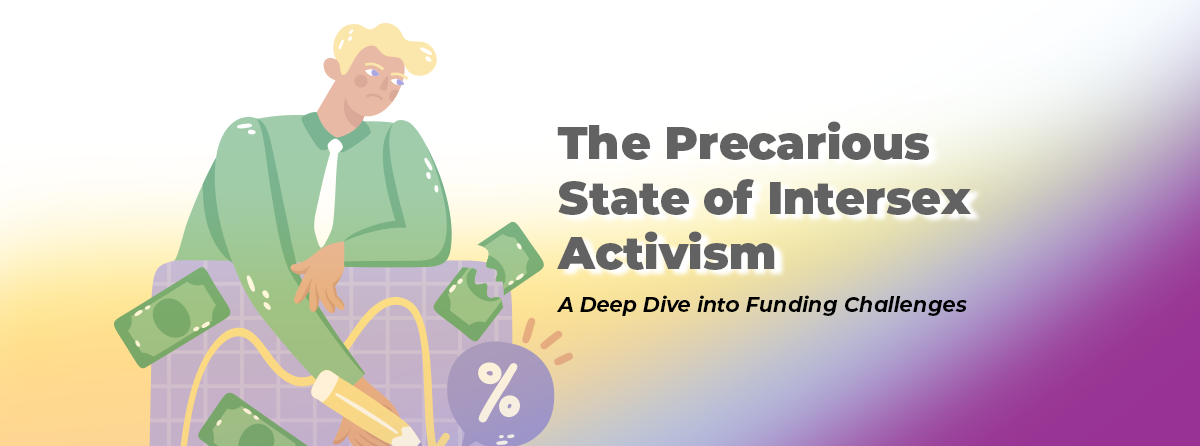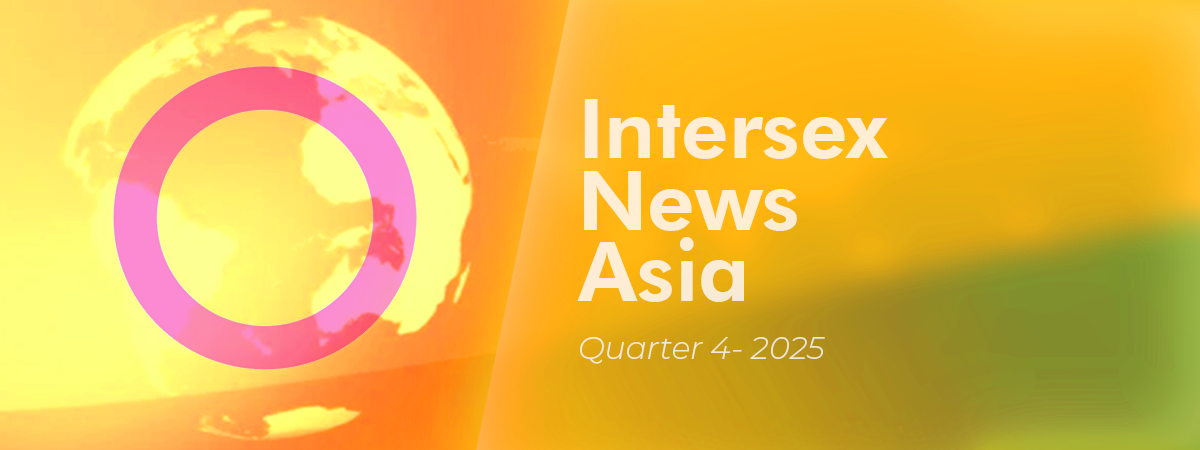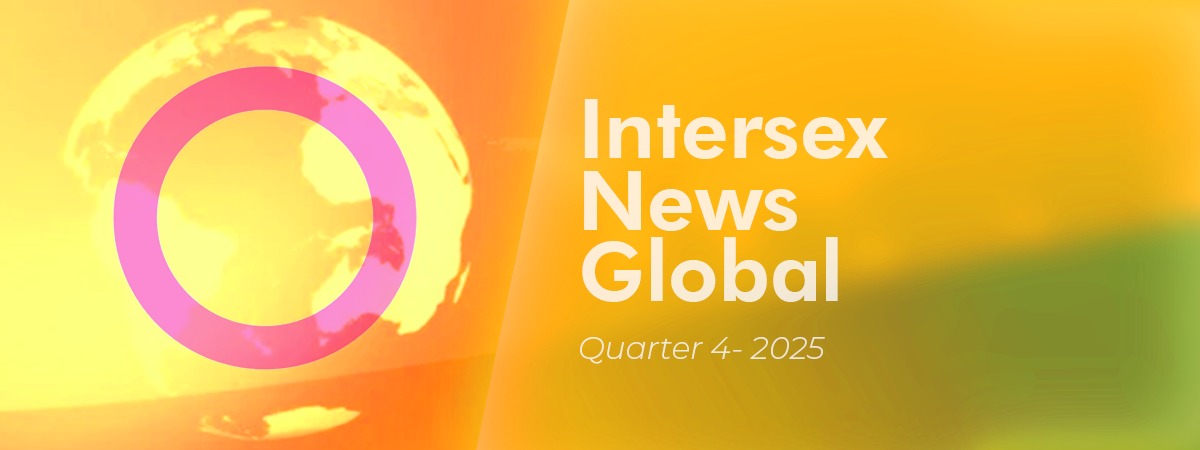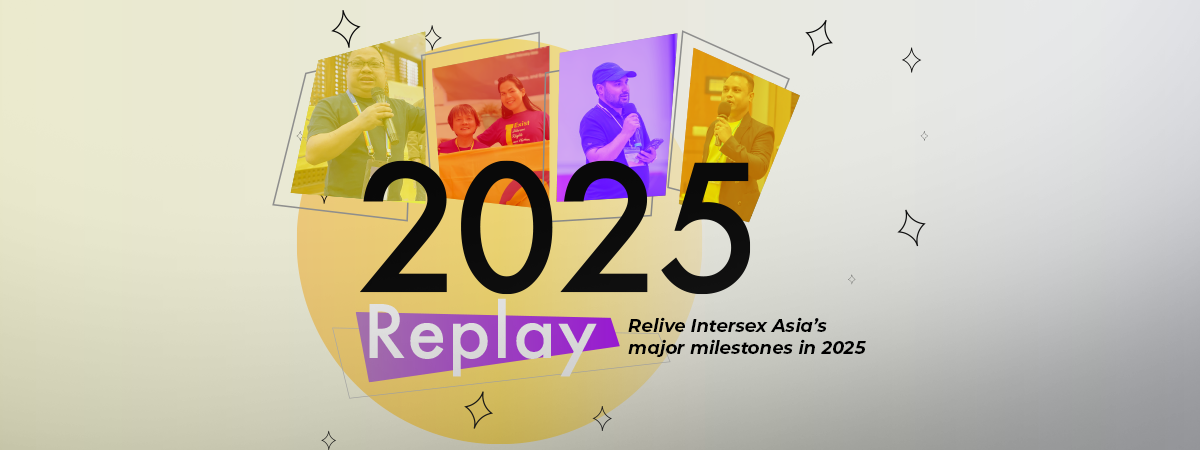In the first episode of the newly released “Inter-Perspective” talk show, organized by Intersex Asia, the speakers discussed the serious lack of money for intersex activism worldwide, made worse by changes in US policy. While this news brought up many conversations earlier this year, the impact of it hasn’t fully shown up until now. Apart from the struggle with too little funding and unfair policies, community organizations are now starting to see layoffs and closures, leading to a major downscale of their work. For intersex intersex-specific organization, what’s the current state of their work and funding? And how are we going to re-evaluate our vision moving forward?

The talk highlighted how US government funding cuts and policy changes have created a ripple effect across intersex organizations. While some groups, like the one represented by Esan Regmi from Nepal, may not have been directly dependent on US funding due to diverse sources, the cuts have nevertheless impacted the global and regional intersex movement indirectly. This decline in financial resources can lead to reduced capacity for advocacy, fewer programs aimed at raising awareness, and diminished resources for community support services. Ultimately, this indirect impact is significant, as a decline in overall funding for LGBTIQ+ initiatives can strain the entire ecosystem of support.
Jeff Cagandahan from the Philippines pointed out two big problems: US funding cuts and new, restrictive rules. The Trump administration’s narrow redefinition of sex and gender marginalized intersex people, rolling back hard-won legal protections in critical areas such as healthcare, education, and civil rights. This makes it harder to raise funds, as some donors or governments might not recognize intersex people’s needs. He also notes that funding for intersex issues is often mixed with broader LGBTQIA+ funding, meaning general cuts really hurt the already underfunded intersex movement. This is even more dire when looking at the overall picture, where only 1% of global LGBTI funding is allocated to the intersex population.
Nada from Thailand further illustrates the systemic nature of these challenges. While Intersex Thailand as an organization didn’t get US money directly, the groups they worked with were heavily affected. This led to staff shortages and delays in important work, such as submitting shadow reports for the CEDAW review, which is very critical in advancing intersex rights. This shows how even indirect funding changes can disrupt important advocacy progress. The need for other countries and donors to step in, acknowledge the intersex needs and provide support is more important than ever.
This dire situation is not unique to the organizations featured in the show. Earlier this year, reports from Outright International confirmed the “alarming impacts” of US foreign aid cuts on LGBTIQ+ people worldwide, noting that the withdrawal of funds has led to program closures, staff layoffs, and an increase in violence and discrimination. Many LGBTIQ+ organizations, including intersex groups, struggle to secure local funding due to criminalizing laws and pervasive societal stigma. Most intersex groups currently operate on very small yearly budgets, and many get no outside funding. Many intersex organizations operated efficiently with the low amount of funding they had, but that’s not the reason for the lack of support. This lack of money means activists work with very little, rely on volunteers, and often get burned out, affecting their health, mental health, and ultimately hurting the movement even more. 6 months after the announcement of the funding cut, the situation is getting worse than ever, and we risk losing the very small voices we have
The intersex movement is currently facing a significant financial challenge. Many organizations dedicated to advocacy, community building, and human rights protection are at risk without consistent, flexible, or targeted funding resources. The question now is how we and other organizations, both intersex-led and allies, can band together and weather the storm, and what other solutions are for funding diversification. The talk was not meant to offer a definitive answer, but more of a re-evaluation of the current status. We at Intersex Asia, despite challenges, are still fully committed to standing with our community to ensure our vision of a just world for intersex individuals is realized! We envision a society where an Intersex person is embraced, accepted, and empowered. To achieve this goal, we are dedicated to collaborating with allies, fellow advocates, and stakeholders to ensure that the voices, needs, and rights of Intersex individuals are not only acknowledged but actively upheld as we work towards meaningful impacts for Intersex individuals.




